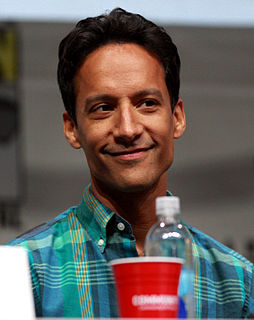A Quote by Geoff Mulgan
Social innovation thrives on collaboration; on doing things with others, rather than just to them or for them: hence the great interest in new ways of using the web to 'crowdsource' ideas, or the many experiments involving users in designing services.
Related Quotes
The common thread for everything I do is this idea of a Web-services architecture. What does that mean? It means taking components of software and systems and having them be self-describing, so that you can aim them, ask them what their capabilities are, and communicate with them using a standard protocol.
There are two sure ways to fail: never get started and quit before you succeed. Many companies promote the language of risk-taking and innovation but are so concerned with short term profit goals that their culture discourages innovation (trying new things) and abandons promising projects too soon. It shouldn't require exceptional moral courage to try new things and stick with them.
I'd always been acutely sensitive to my surroundings - and aware that I could make them rather than just observe them. So I began by designing interiors for myself, for friends, for clients - I just felt that I'd discovered my element, and those who really looked at what I was doing liked it - and the rest followed.
Great entrepreneurs focus intensely on an opportunity where others see nothing. This focus and intensity helps to eliminate wasted effort and distractions. Most companies die from indigestion rather than starvation, i.e., companies suffer from doing too many things at the same time rather than doing too few things very well.
Great entrepreneurs focus intensely on an opportunity where others see nothing. This focus and intensity helps to eliminate wasted effort and distractions. Most companies die from indigestion rather than starvation, i.e. companies suffer from doing too many things at the same time rather than doing too few things very well.
I think in many ways, I'm sort of a blank canvas, because in many ways, I'm just observing the world and the people around me and their characters and letting them kind of explode off me and to find out why they're doing what they're doing. But then every once in awhile, I get to take on a whole new character.
The United States has an unfair advantage, as most of the popular cloud services, search engines, computer and mobile operating systems or web browsers are made by U.S. companies. When the rest of the world uses the net, they are effectively using U.S.-based services, making them a legal target for U.S. intelligence.
In the urban community, the church doesn't just take people to Heaven; it feeds, clothes, and houses them. It teaches them how to read and gets them jobs. The church should be doing all that. What the government should be doing is freeing up the church and supporting the church, as long as it is providing social services.



































